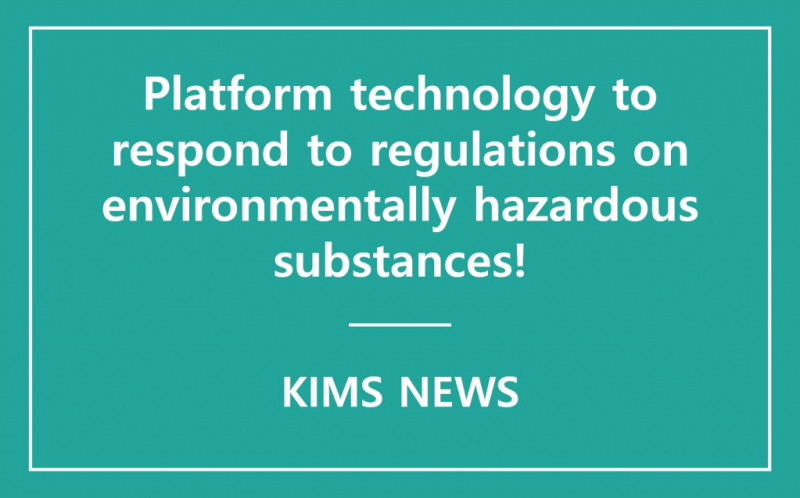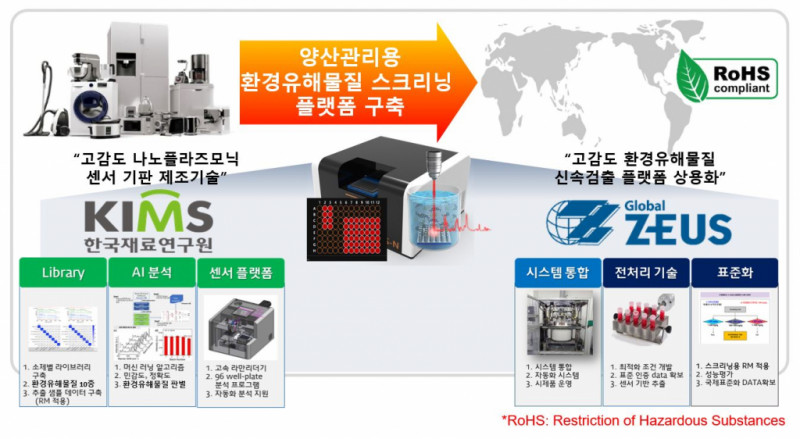None R&D | KIMS transferred the high-sensitivity nanoplasmonic sensor substrate manufacturing technology to Zeus
Page info
Date22-10-14 15:45 Hit292Link
Contents
Platform technology to respond to regulations on environmentally hazardous substances! |
The Korea Institute of Materials Science, a government-funded research institute under the Ministry of Science and ICT, transferred its high-sensitivity nanoplasmonic sensor substrate manufacturing technology to Zeus, a specialized semiconductor, display, and robot manufacturer. Under the technology commercialization agreement, KIMS will transfer technologies regarding high-sensitivity nanoplasmonic sensor materials, rapid detection method, and AI analysis platform to Zeus to respond to RoHS requirements on electronic products. Based on this technology, Zeus plans to commercialize a high-sensitivity rapid detection platform for harmful substances and an integrated AI/hardware system.
KIMS has the original technology to manufacture plasma etching technology-based high-density nanostructures on low-cost polymer substrates. Nanoplasmonic materials have secured price competitiveness, process easiness, and reliability. It is possible to conduct a rapid and high-sensitivity inspection of environmentally harmful substances by forming high-density plasmonic nanostructures on a 96-well plate without using a nanopatterning process. KIMS and Zeus plan to conduct follow-up joint research to develop biomaterial detection and identification technology through nanoplasmonic materials. The platform technologies, including high-sensitivity nanosensor materials, AI-based diagnosis technology, pre-processing, and analysis technology, are expected to be applied to various disease diagnose as well as in vitro diagnose for medical check-ups.
The expansion of eco-friendly policies drives the rapid growth of the environmentally hazardous substances detection industry. Korea is hugely dependent on international chemical analysis equipment companies in Japan and the US. With the commercialization of the new optical-based rapid detection technology based on the nanoplasmonic sensor material source technology of KIMS, the domestic chemical analysis market is expected to develop by replacing imported equipment and expanding export.
Jung-hwan Lee, the President of KIMS, said, “Responding to international environmental regulations in the electrical and electronics industry can contribute to strengthening the competitiveness of Korea’s representative industries and securing external credibility. We will continue to make efforts to provide the generic technology for the green transformation of the electrical and electronics industry by easing the burden of analysis costs on manufacturing companies and securing reliability in quality management.”


